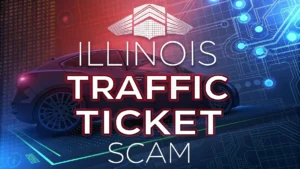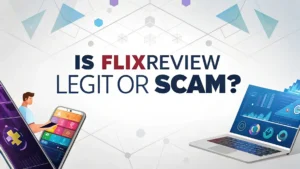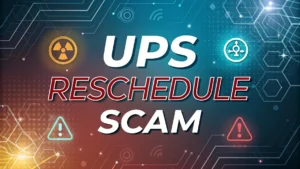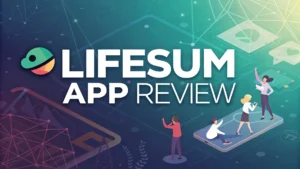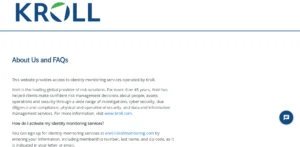Have you ever received a call from an 833 area code and wondered what it means? Do you worry that this might be a scam? If so, you’re not alone. With the rise of spam calls and identity theft, it’s only natural to feel cautious when receiving calls from unfamiliar numbers.
The 833 area code is one of the toll-free codes used in North America, but lately, people have raised concerns about scams tied to these calls.
In this blog post, we’ll take a closer look at the 833 area code, how it works, why scammers might use it, and most importantly, how you can protect yourself. While the 833 area code itself is legitimate, there are cases where fraudsters misuse it to trick people into giving up personal or financial information. That’s why it’s crucial to stay informed and learn the warning signs.
Key Takeaways
- The 833 area code is a toll-free number, often used by businesses across North America.
- Although 833 numbers are real and registered, they can be misused by scammers.
- Be wary of unsolicited calls asking for your personal information or money.
- Never share sensitive data over the phone unless you’re certain of the caller’s identity.
- If you receive a suspicious call from an 833 number, hang up and contact the company directly using verified contact details.
- Always keep your software and security tools updated to reduce risks of phishing or spoofing attacks.
- Report any suspicious activity related to 833 numbers to local authorities or telecom providers.
- Remember, scammers often pose as customer support agents or government officials to gain your trust.
- Educate your family members, especially seniors, about the dangers of phone scams.
- Raising awareness helps prevent others from falling victim to 833 area code scams.
What Is the 833 Area Code?
The 833 area code is part of the North American Numbering Plan, which includes the United States, Canada, and some Caribbean countries. It was introduced to provide more toll-free numbers as demand grew for services like customer support lines and marketing campaigns. Unlike regular phone numbers, 833 numbers allow callers to reach businesses without being charged for the call. This makes them popular among companies that want to offer free communication options to their customers.
Toll-free numbers work differently than standard phone lines. When someone dials an 833 number, the business receiving the call pays for the charges instead of the caller. This encourages consumers to reach out with questions, complaints, or service requests. Because of its convenience, the 833 area code has become widely used across various industries. However, its popularity also makes it a target for misuse by fraudsters who try to mimic legitimate companies.
Knowing how 833 numbers operate is the first step toward protecting yourself from potential scams.
Are 833 Numbers Real or Fake?
Yes, 833 numbers are real and officially registered. They are issued through the North American Numbering Plan Administrator (NANP), ensuring that each number is valid and legally assigned to businesses or organizations. Companies must go through a formal process to obtain a toll-free number, including paying fees and setting up appropriate phone services.
However, just because a number is real doesn’t mean it’s always safe. Scammers can still use real numbers by hijacking them or setting up fake companies to appear legitimate. Some fraudsters even use voice-over-internet-protocol (VoIP) technology to spoof caller ID displays, making it seem like they’re calling from a genuine *833 number.
It’s important to remember that while the 833 area code is trustworthy, it’s not immune to misuse. Anyone can register a toll-free number, and that opens the door for bad actors to exploit unsuspecting individuals. Always verify the legitimacy of the caller before sharing any personal or financial information.
Being aware that 833 numbers can be misused is key to staying protected against potential scams.
Why Would Scammers Use the 833 Area Code?
Scammers often choose 833 numbers because they look official and trustworthy. Toll-free numbers are commonly associated with customer service lines, banks, insurance companies, and government agencies—making it easier for fraudsters to pose as representatives of these organizations.
One reason scammers prefer the 833 area code is that it’s relatively new compared to older toll-free codes like 800 or 888. This means many people may not be familiar with it yet, increasing the chance they’ll fall for a scam. Since 833 numbers are less commonly recognized, callers might assume they’re dealing with a real business.
Additionally, using a toll-free number gives scammers a sense of legitimacy. People tend to believe that if a number is toll-free, it must belong to a reputable organization. This perception makes it easier for criminals to convince victims to disclose personal information, click on malicious links, or send money.
By exploiting the trust associated with toll-free numbers, scammers make their schemes more convincing. That’s why it’s essential to stay alert and never assume a caller is who they claim to be just because of the number they’re using.
Common Scams Involving the 833 Area Code
Several types of scams involve the 833 area code, and understanding these tactics can help you avoid becoming a victim. One common scheme involves impersonating customer service representatives. Scammers may call claiming to be from a well-known company like a bank, tech support team, or utility provider. They often say there’s an urgent issue that requires immediate action, such as a payment problem or a security breach.
Another widespread scam is the “prize or gift card” deception. Fraudsters may tell you that you’ve won a prize or need to pay a small fee using gift cards to claim it. These calls usually create a sense of urgency, pushing victims to act quickly without thinking.
There is also the “government impersonation” scam, where callers pretend to be from the IRS, Social Security Administration, or another federal agency. They may claim that you owe money or face legal consequences if you don’t immediately comply with their demands.
Lastly, some scams involve text messages from 833 numbers. These messages often contain phishing links designed to steal login credentials, banking information, or other sensitive data. Always be cautious when receiving unexpected communications from any 833 number.
Signs of a Potential Scam Call
Recognizing the red flags of a scam call is essential for protecting yourself. One major sign is when the caller creates a sense of urgency or fear. Scammers often say things like “your account is frozen,” “you owe money,” or “you’ll be arrested unless you act now.” These pressure tactics aim to make you panic and give away information or money without thinking clearly.
Another warning sign is when the caller asks for unusual payment methods. Legitimate businesses typically accept credit cards, checks, or direct transfers—not untraceable forms like gift cards, cryptocurrency, or wire transfers. If someone insists on one of these alternative methods, it’s likely a scam.
Scammers may also ask for personal or financial information upfront. Genuine companies will rarely request your social security number, bank account details, or passwords over the phone unless you initiated the conversation and know the recipient is trustworthy.
Be cautious if the caller refuses to provide written confirmation or refuses to let you verify their identity. If something feels off, trust your instincts and end the conversation. Your safety comes first.
How to Protect Yourself from 833 Area Code Scams
To stay safe from scams involving 833 numbers, always take precautions when receiving unexpected calls or texts. First, never share personal or financial information over the phone unless you are certain of the caller’s identity. If someone contacts you claiming to be from a company or government agency, take a moment to verify their legitimacy independently.
You can do this by looking up the official contact number of the organization and calling them back directly. This ensures you speak to a trusted representative rather than a scammer posing as one. Additionally, avoid clicking on links sent via text messages from 833 numbers, as they may lead to phishing sites designed to steal your data.
Keeping your phone’s software and security apps up to date is another effective way to protect yourself. Many modern smartphones come with built-in spam filters or offer third-party apps that can detect and block scam calls. Enable these features whenever possible.
Finally, report any suspicious calls or texts from 833 numbers to your local consumer protection agency or telecommunications provider. Reporting scams helps authorities track down fraudsters and prevents others from becoming victims.
What to Do If You Receive a Suspicious Call
If you receive a call from an 833 number that raises suspicion, the best course of action is to remain calm and avoid engaging further. Do not provide any personal or financial details, no matter how urgent the situation seems. Scammers often try to rush you into making decisions, so take a deep breath and pause before taking any action.
Instead of responding to the caller, hang up immediately. Then, verify the legitimacy of the supposed organization by contacting them directly using known, trusted contact details. For example, if the caller claims to be from a bank, find the bank’s official website or locate their customer service number on a recent bill or statement.
Keep a record of the number, the time of the call, and any details the person shared during the conversation. This information can be helpful if you decide to file a report with law enforcement or your telecommunications provider. Also, consider blocking the number to prevent future contact.
Reporting the incident is another crucial step. Share the details with the Federal Trade Commission (FTC) or your local consumer protection office. By doing so, you contribute to efforts in stopping scammers and protecting others from similar fraud attempts.
Frequently Asked Questions About the 833 Area Code
Is the 833 area code always a scam?
No, the 833 area code is a legitimate toll-free number used by businesses and organizations. However, scammers sometimes misuse these numbers to appear more credible. Always verify the caller’s identity before sharing any personal or financial information.
Why am I getting calls from an 833 number?
You might receive calls from an 833 number because businesses use them for customer service, sales, or marketing purposes. But if the call seems suspicious, it could be a scam attempt. Stay cautious and avoid sharing sensitive information unless you confirm the caller’s legitimacy.
How can I stop receiving scam calls from 833 numbers?
Use your phone’s built-in call-blocking feature or download a third-party app that identifies and blocks spam calls. You can also register your number with the National Do Not Call Registry to reduce unwanted telemarketing calls.
Can scammers actually use real 833 numbers?
Yes, scammers can hijack real toll-free numbers or set up fake accounts to appear as though they are calling from a legitimate 833 number. Always verify the source before trusting the caller.
Should I answer calls from unknown 833 numbers?
It’s safer to avoid answering unknown 833 numbers, especially if you weren’t expecting a call. If the call is important, the caller will likely leave a voicemail or contact you through other channels.

